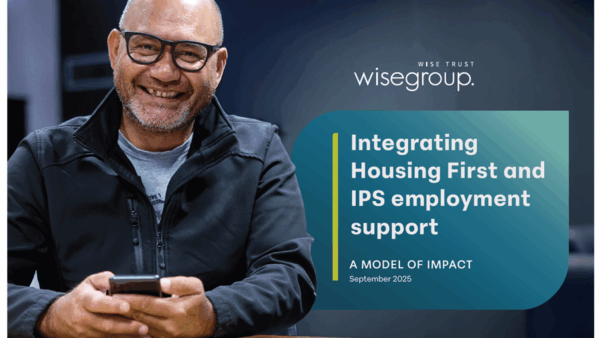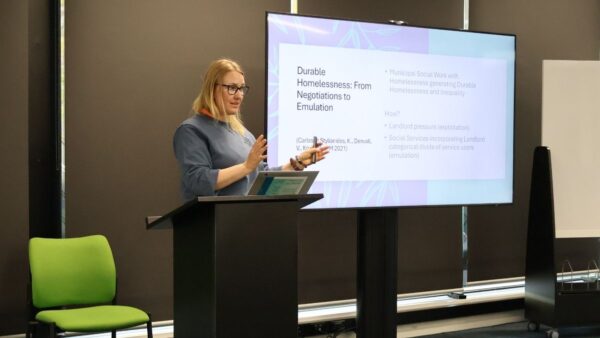Housing the homeless is the first step
Study shows Housing First approach improves people’s lives
A University of Otago-led study involving people housed by The People’s Project has shown that providing unconditional access to housing is the first step towards improving the mental and physical health and wellbeing of those experiencing homelessness.
The study, Two-Year Post-Housing Outcomes for a Housing First Cohort in Aotearoa New Zealand (PDF), looked at the health, income and justice outcomes for 387 people in the first two years after they were housed by The People’s Project, and the results have just been published in the European Journal of Homelessness.
Dr Carole McMinn, Manager of The People’s Project, Hamilton worked on the study as part of her PhD research at the University of Waikato, alongside lead researcher, Associate Professor Nevil Pierse, co-director of the He Kāinga Oranga Housing and Health Research Programme at the University of Otago, Wellington. Other credited authors on the report include The People’s Project chief executive, Julie Nelson, and general manager, Kerry Hawkes.
Significant improvements in mental health and wellbeing
The study found there was significant improvement in the mental health of those in the study 12 months after they were housed, with the number of nights people spent in acute mental health units dropping by 50 per cent in the first year. This was maintained in the second year.
General visits to health centres, including to diabetes and outpatient clinics, increased significantly with a 15 per cent increase after one year of housing and a 31 per cent increase after two years.
Those in the study also had fewer encounters with police and the courts, with the number of police offences and charges down over both years. Incomes also rose, with the average person in the study having almost $3,000 more in overall total income – although their incomes remained low.
Unconditional housing first step to improved wellbeing
Associate Professor Pierse says supporting people into housing unconditionally is the first step towards improving their wellbeing.
“Permanent supportive housing led to a recovery in their mental health which in turn led to less crime, higher wages, and allowed them to access more financial support from Work and Income.”
Dr Carole McMinn says it’s significant that the 387 people in the study had more than 200,000 recorded interactions with government services before they were housed, more than 10 times that of other New Zealanders.
“They were asking for help for at least 15 years before they were housed by The People’s Project and are far from being the ‘hard to reach’ population they have been described as. This research shows the Housing First approach of providing housing and ongoing support improves people’s lives.”
She says the research also provides an insight into the nature of our homeless population.
“There are more females in our group compared to adult homeless groups in other countries. Those who experience visible homelessness are often perceived to be mainly male. Māori were significantly over-represented, making up 71 per cent of the group, despite being only 15 per cent of the general population.”
Publication: Two-Year Post-Housing Outcomes for a Housing First Cohort in Aotearoa New Zealand (PDF) European Journal of Homelessness
University of Otago news, 15 December 2022: Housing the homeless is the first step



